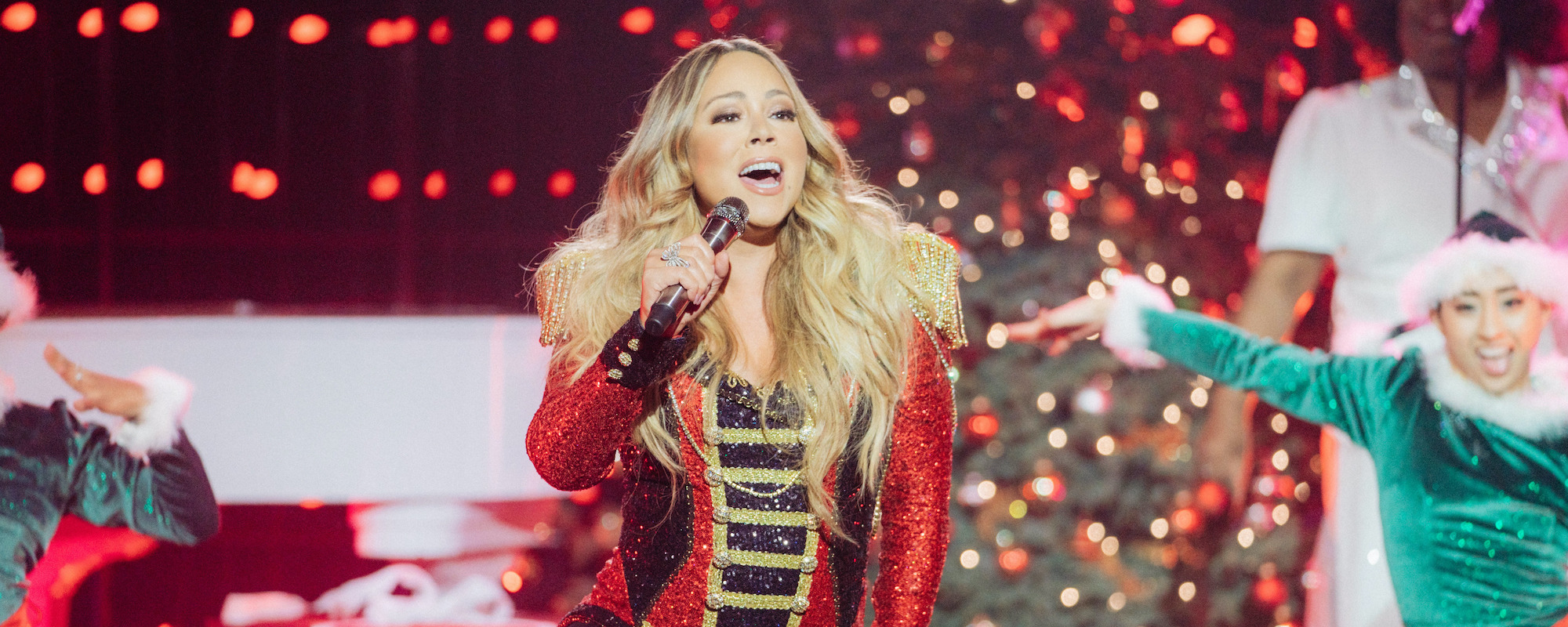On October 20, 1967, The Doors headlined the University of Michigan’s homecoming festivities in Ann Arbor. Although the performance itself was infamously disastrous, the show—and frontman Jim Morrison’s drunken antagonizing—wasn’t all for naught.
Videos by American Songwriter
Despite the chaos witnessed on that fateful night, the musical stars aligned for one attendee (and UM dropout) in particular: James Osterberg Jr. Inspired by the crazed spectacle he saw in his former school’s intramural building, Osterberg would go on to become Iggy Pop, frontman of The Stooges and punk rock icon in his own right.
The Doors’ Infamous University of Michigan Show
In a 2010 feature for the University of Michigan’s Michigan Today, Alan Glenn described the tumultuous homecoming scene, which featured a far more rambunctious collegiate crowd than the Midwestern college sees today. The Doors, riding the high of their 1967 hit “Light My Fire,” were headlining a concert in the University of Michigan’s intramural sports building. The opener was local dance band, Long Island Sound.
When the time came for The Doors to take the stage, Morrison was MIA. In an attempt to buy time, the other three band members began vamping “Soul Kitchen,” hoping their frontman would appear soon. However, it didn’t take long for the crowd to become agitated, booing the instrumentalists off the stage. Thirty minutes later, the band returned with a drunken Morrison in tow.
The inebriated frontman quickly got to work antagonizing the collegiate crowd, dropping f-bombs and berating the overwhelmingly straight-laced crowd. “He was missing all the cues,” keyboardist Ray Manzarek later recalled. “I’m thinking, ‘Jim, do not anger these guys! These are football players. Look at the thickness of their necks!’ But he just kept going on and on.” Eventually, guitarist Robby Krieger and drummer John Densmore abandoned ship, and Manzarek escorted his wobbly lead singer offstage.
Most Everyone Hated The Performance (With One Notable Exception)
Unsurprisingly, The Doors’ spectacle outraged most of the University of Michigan concertgoers—except for one James Osterberg Jr. Osterberg, who would later adopt his stage persona of Iggy Pop, spoke of his homecoming experience for Please Kill Me, an oral history of punk curated by Legs McNeil and Gillian McCain. The audience, Iggy recalled, was “all these big, butch American clods and their girls.”
“The band got onstage first without Morrison, and they just sounded like pure s***. It sounded awful—decrepit and disgusting and unbalanced. They were playing the riff to “Soul Kitchen” over and over until the singer was gonna make his entrance.” While his fellow attendees grew angry over Morrison’s inebriated performance, which included him singing in a Betty Boop-esque falsetto, Iggy grew inspired.
“I was very excited,” he said. “I loved the antagonism; I loved that he was p***ing them off. Yes, yes, yes. The gig lasted only fifteen or twenty minutes because they had to pull Morrison offstage and get him out of there fast because the people were gonna attack him. It made a big impression on me. I thought, look how awful they are, and they’ve got the number one single in the country! If this guy can do it, I can do it. And I gotta do it now. I can’t wait any longer” (via Louder Sound).
How The Doors’ Drunken Debacle Inspired An Entire Musical Generation
By the time Iggy Pop (then Jim Osterberg) witnessed The Doors’ alarming homecoming performance, he had already dropped out of the University of Michigan. The future punk rocker had spent the past couple of years learning more about blues and rock performance. Morrison’s drunken spectacle was the final lesson Iggy needed to form his similarly outrageous onstage persona.
“At the time [Iggy] was being reviled, around 1970, rock music revolved around virtuosity,” Paul Trynka, author of Iggy Pop: Open Up and Bleed, explained (via Michigan Daily). “Once his impact was felt, from 1977, rock music revolved around feelings, emotions, like boredom, frustration, incoherent rage, and the joy of loud, explosive rock and roll.” Trynka argued that without Iggy Pop (and, before that, Jim Morrison), there would be no Sex Pistols, Nirvana, or the White Stripes.
The fact that The Doors did end up performing that night at the University of Michigan only adds to the serendipitousness of Iggy Pop’s creation. After The Doors’ initial exit offstage, the Long Island Sound returned to play another set for the agitated co-eds. However, Morrison managed to sober up by the night’s end, and The Doors returned to the stage and performed their songs without so much as a hiccup. Indeed, fate works in mysterious ways, like making sure Iggy Pop had already wandered off to cause trouble elsewhere before Morrison could shatter his rowdy frontman dreams.
(Photo by Central Press/Getty Images)













Leave a Reply
Only members can comment. Become a member. Already a member? Log in.